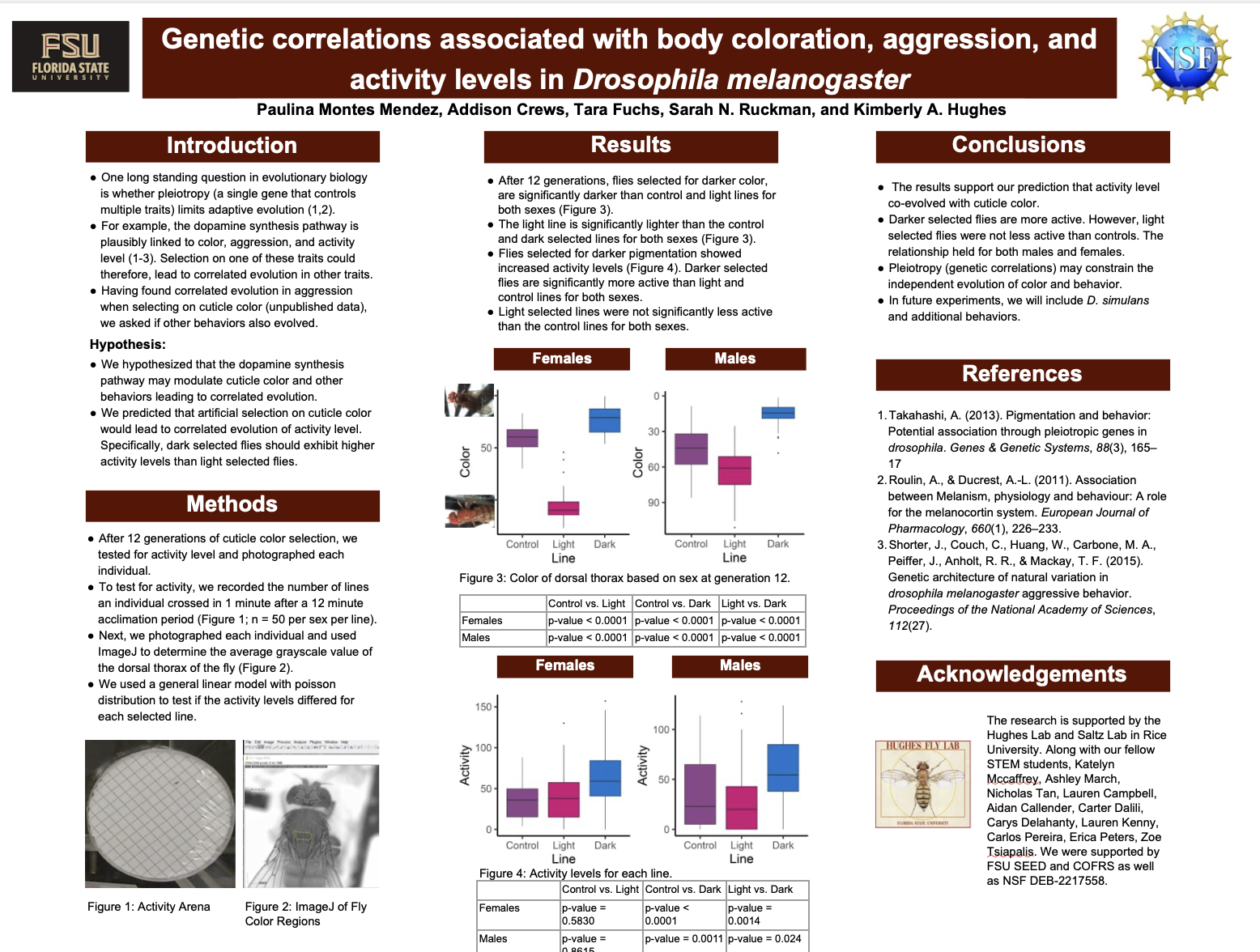Research Symposium
25th annual Undergraduate Research Symposium, April 1, 2025
Addison Crews Poster Session 1: 9:30 am - 10:30 am/ Poster #17
BIO
Hello, my name is Addison Crews. I am originally from Nashville, Tennessee. I am a third year Biological Sciences student here at FSU. I plan on applying to veterinary school this upcoming cycle. I began working in the Hughes Lab in September 2022 and I've loved the experience. I have a piqued interest in field research within the realm of animal behavior and genetics.
Genetic correlations associated with body coloration, aggression, and activity levels in Drosophila melanogaster
Authors: Addison Crews, Sarah RuckmanStudent Major: Biological Sciences
Mentor: Sarah Ruckman
Mentor's Department: Biology Mentor's College: College of Arts and Sciences Co-Presenters: Paulina Montes Mendez and Tara Fuchs
Abstract
One long-standing question in evolutionary biology is whether single genes that control multiple traits (pleiotropy) result in limitations on adaptive evolution. If it does, then our ability to predict adaptation (e.g., in the face of changing environments) is compromised. We are using a much-discussed correlation between body coloration and aggressive behavior as a system to address this question. Having found the predicted genetic correlation between cuticle color and aggressive behavior in Drosophila melanogaster using artificial selection (unpublished data), we then asked if any other behaviors co-evolved under selection on cuticle color. For example, the dopamine synthesis pathway is plausibly related to color, aggression, and other behaviors, such as activity level. We therefore measured the activity level of flies (D. melanogaster) selected for darker and lighter cuticle color. Results suggest that activity level is higher in the dark-selected lines, suggesting that genetic correlations do constrain the independent evolution of cuticle color and behavior. The next step in this study is to identify candidate genes underlying the correlation and test for pleiotropic effects using transgenic approaches.
Keywords: Genetics, Pleiotropy, Evolutionary Constraints

